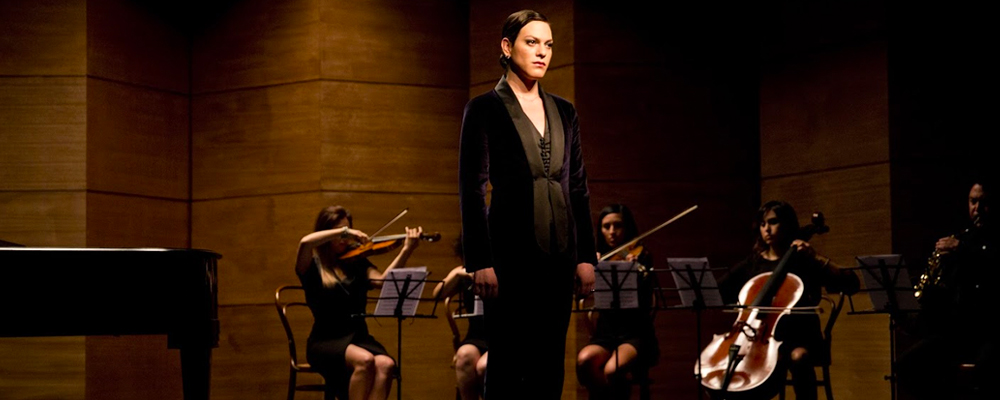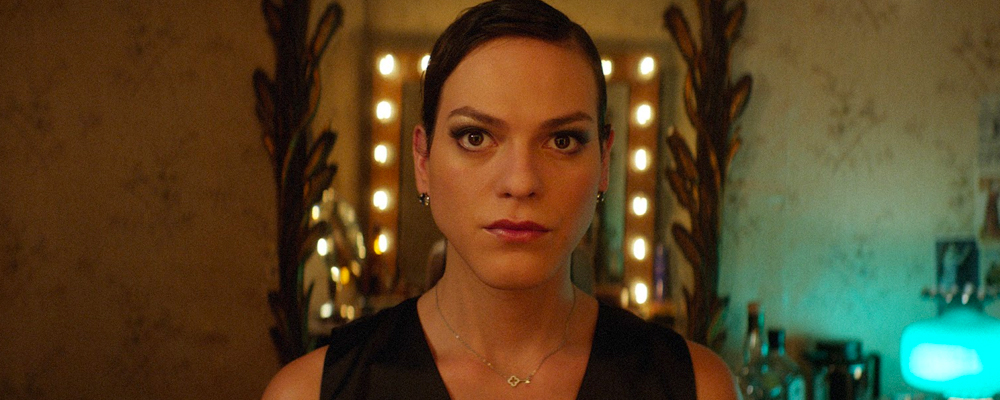‘A Fantastic Woman’ Eloquently Explores the Struggle for Identity
Alci Rengifo
The struggle for the respect of identity is universal. In the United States we currently find ourselves debating labels, gender and their applications to our everyday lives. “A Fantastic Woman” tells a story rooted in the current struggles of identity in South America. One of this year’s nominees for the Best Foreign Language Film Oscar, this simple yet profound movie is an elegant portrait of a personality assailed for simply being an individual. Director Sebastián Lelio, one of Chile’s major emerging filmmakers, produces moments that cut deep and others that become cinematic reverie. He doesn’t preach but evokes.
One night while walking into a Santiago club, Orlando (Francisco Reyes) locks eyes with the house singer Marina Vidal (Daniela Vega). They become a couple so bonded that the obvious age difference dissolves. But one evening Orlando falls ill and suddenly dies, leaving Marina alone to answer to the authorities as to the nature of the relationship. She is transgender and this immediately provokes the police, social workers and Orlando’s family to treat Marina with outright hostility and constant suspicion. A case worker named Adriana (Amparo Noguera) insists there must be sexual abuse involved and Orlando’s ex looks at Marina as an alien object, while his son is even more brutish. Even attending the funeral becomes a battle of wills. In a society still attached to violent prejudices, Marina’s struggle is to simply be viewed as human.
“A Fantastic Woman” is making waves by being one of the first important South American films to tackle directly with the issue of sexual identity and transgender rights. Chilean cinema has been a haunted medium for the last 40 years due to the country’s recent history. Nearly all major Chilean filmmakers have obsessively explored the 1973, CIA-backed military coup and the subsequent dictatorship that lasted until 1988. Directors like Patricio Guzman and Miguel Littin have produced poetic, memorable dramas about Chile’s bloody transition from democracy to dictatorship and back again. Lelio is part of a younger generation of filmmakers who still feel the shadow of past events, but channel their awareness into urgent themes about their society as it is today. In this movie there is still repression, profound class division and violent, even fascistic attitudes, but they are more subtle and rooted in stubborn traditionalism. Marina wanders the streets almost like an exile, aware of the terrible glances and stares. In one of the film’s most memorable scenes, she is assaulted by a fierce gust of wind and the world seems to fall apart around her. To be transgender, gay or lesbian in Latin America is to face the wrath of entrenched reactionary values. In one disturbing scene Marina is grabbed by Orlando’s male relatives and pushed into a van where they gag and shout abuse at her. There is an ominous reminder here of the stories of leftists scooped up during the dictatorship to be tortured and disappeared.
The screenplay by Lelio and Gonzalo Maza is intelligent in the way it functions as a character study within a gallery of personalities. The narrative isn’t a traditional romance where Orlando and Marina’s relationship becomes the focus, instead it’s about the aftermath of a tragedy and how Marina isn’t even allowed to grieve because of who she is. The tension in the air is palpable because the characters’ prejudices are brutal and open (“To me you’re a chimera”). In one harrowing scene Adriana makes Marina strip for a medical exam administered by a clueless, homophobic doctor. When Marina enters the church where Orlando’s memorial service is being held the family behaves with cruel hysteria. Lelio films these moments as snapshots of social discrimination. The approach is almost like arthouse anthropology. He doesn’t try to explain away why every character has their specific prejudice. Lelio is simply presenting a portrait to say “this is how it is.”
“A Fantastic Woman” is produced by Pablo Larrain, the acclaimed Chilean director known for his atmospheric, evocative style in films like “Neruda” and “Jackie.” A visually eloquent film, Lelio movies certain moments with a dreamlike tone, especially when we see Orlando and Marina embracing on the dance floor, or when Marina in her grief loses herself in the pulsing world of Santiago’s night life. There is a scene where Marina wanders into a spa to open Orlando’s locker and as she makes her way through the bathhouse Lelio stages the moment with baroque framing.
Mention must be made of the film’s lead, Daniela Vega, here in her first major feature film role. She plays Marina with such a natural air and subtle strength that moments have a documentary-like realism. This isn’t a character meant to evoke pity or a superficial sense of heroism. Vega plays Marina as an individual almost baffled by a world losing its mind over someone’s very identity. Nicolás Saavedra is toxic and memorable as Orlando’s son Bruno, who treats Marina with animalistic disdain. The great Chilean actor Luis Gnecco, who played the title role in Larrain’s “Neruda,” returns here is the rare voice of sanity who tries to speak out against the way his family is treating Marina.
One of the great things a good movie can do is put the viewer in someone else’s shoes. “A Fantastic Woman” does this artfully and with a keen sense of human behavior. It invites us to get to know a character and her world, raising issues that transcend subtitles and nationality.
“A Fantastic Woman” opens Feb. 2 in New York and Los Angeles and releases Feb. 9 in select theaters, expanding through March.



